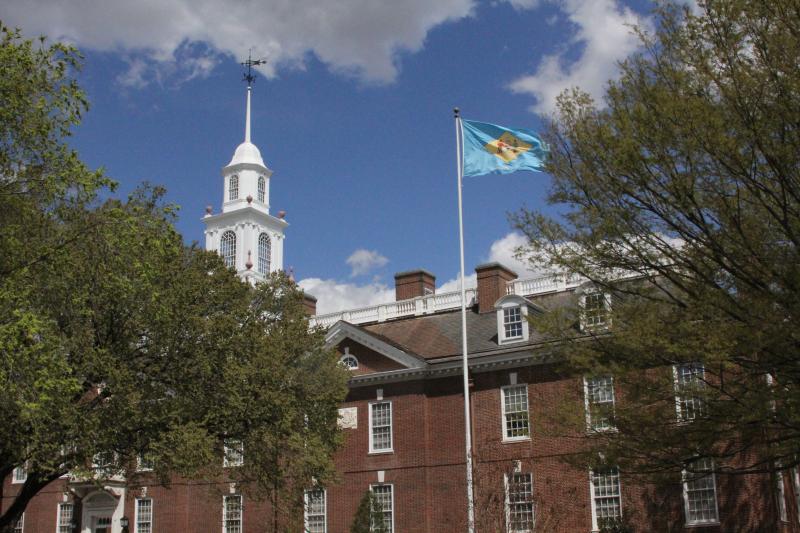Following the Supreme Court leak of a document that shows the court could revert women’s reproductive rights to the states, House Majority Leader Valerie Longhurst, D-Bear, and Rep. Debra Heffernan, D-Bellfonte, issued a statement in support of Roe v. Wade, a decision that legalized abortion across the county.
"In Delaware, we chose to be prepared for this looming outcome and took a series of actions to protect and enshrine a woman's right to choose in our state. In 2017, we codified the protections of Roe v. Wade into state law, ensuring that no matter what action the Supreme Court takes, the right to seek a safe and legal abortion is safeguarded. Thankfully, Delaware women will still be able to access reproductive services now and in the future. While we hoped that this day would never come, we did not want to arrive at this point without these critical protections in place,” the statement reads.
In another effort to protect women’s reproductive rights, the General Assembly recently passed House Bill 320, allowing physician assistants and advanced practice registered nurses to prescribe medication for the termination of pregnancy. The bill was signed into law by Gov. John Carney April 28.
No bed bug bill passes Senate
A bill that prohibits landlords from renting a dwelling unit that the landlord knows has a current bed bug infestation passed the Senate May 3 and awaits action by a House committee.
This bill obligates landlords to notify prospective tenants if an adjacent unit or units are currently infested with or are being treated for bed bugs. In addition, the bill creates steps a landlord must take upon receiving notice of an actual or suspected bed bug infestation, including acknowledging the complaint, inspecting or obtaining investigatory services from a pest management professional, obtaining remedial services from a pest management professional, notifying tenants of inspection, remediation, notifying tenants of the pest management professional's determination regarding the infestation, and maintaining a written record of all complaints and control measures provided for a period of two years.
The bill also provides that if notice of an actual or suspected bed bug infestation is provided within 60 days after occupancy or within 30 days of discovery of a bed bug infestation in an adjoining unit in the building, the landlord is responsible for the costs of investigating and remediating the infestation. If the notice is provided more than 60 days after occupancy and not within 30 days of discovery of a bed bug infestation in an adjoining unit, the landlord is responsible for investigating and remediating the infection, but the tenant shall share in the responsibility for the reasonable costs of the investigation and remediation.
House passes bill ending driver’s license suspensions for not paying fines
A bill to end the practice of suspending a driver's license for nonpayment of fine or fee passed the House May 3 and awaits action in the Senate.
House Bill 244 would prohibit a court or the Department of Transportation from suspending a driver's license for nonpayment of a fine, fee cost, assessment or restitution. The bill would prohibit a court from imposing a fine, fee, cost or assessment on children without the means to pay them, and would also eliminate multiple fees, including the public defender fee, the probation supervision fee, late fees or fees to pay on a payment plan.
The bill would create the Criminal Legal System Imposed Debt Study Group to review the impact that court-imposed financial obligations have on defendants and victims, and make recommendations to promote access, fairness and transparency in the imposition and collection of court-imposed financial obligations.
It now awaits action in the Senate Judiciary Committee.
Bill would create DOC Ombudsman
A bill to create an ombudsman to investigate allegations of abuse in the Department of Correction was introduced April 28.
Senate Bill 150 would create the Office of Corrections Ombudsperson in the Delaware Department of Justice, a division led by an appointee of the Delaware attorney general, empowered to examine any decision, policy or rule by the DOC that is deemed to have an adverse impact on the health, safety and welfare of the state’s incarcerated population.
The office would monitor DOC’s compliance with federal, state and local rules and regulations related to the rights of incarcerated people; offer technical assistance to support the self-advocacy of people in prison; and provide regular communication with incarcerated people and their families about their rights through a statewide toll-free telephone number, a collect telephone number, a website, an email address and a mailing address.
The office would be able to act on complaints from department employees, but employment disputes and issues relating to an inmate’s underlying criminal conviction would be outside its purview. The ombudsperson would be required to remain neutral and would not be permitted to act as an advocate for the department or a complainant.
At the conclusion of each investigation, the office would be required to issue a public decision on the merits of a complaint, along with its recommendations if the ombudsperson determines further action should be made by the department or its employees.
Starting in 2023, the office would be required to produce annual reports that detail the number of complaints received, number of complaints resolved, a description of significant investigations undertaken, unresolved concerns or recommendations and comments from stakeholders.
The bill awaits action in the Senate Corrections & Public Safety Committee.
Bill would set standards for school facilities
A bill that would create uniform standards for evaluating the physical condition and air quality of state schools and educational facilities awaits action in the Senate Education Committee.
Under Senate Bill 270, the Department of Education would be charged with developing baseline standards each district would be required to meet at every school facility, including minimum specifications for water quality, fire safety, mold and mildew, structural integrity, mechanical and electrical systems, and sewer systems, among other categories.
School districts would be required to conduct inspections each year to ensure their facilities are meeting those standards and present the findings at a public school board meeting.
Superintendents would be required to submit the findings and a board-approved remediation plan to DOE and the Joint Capital Improvement Committee by May 1 each year.
The Division of Public Health would be charged with establishing a routine indoor air quality monitoring program for public school facilities, as well as mandatory temperature and humidity ranges for all public schools.






















































